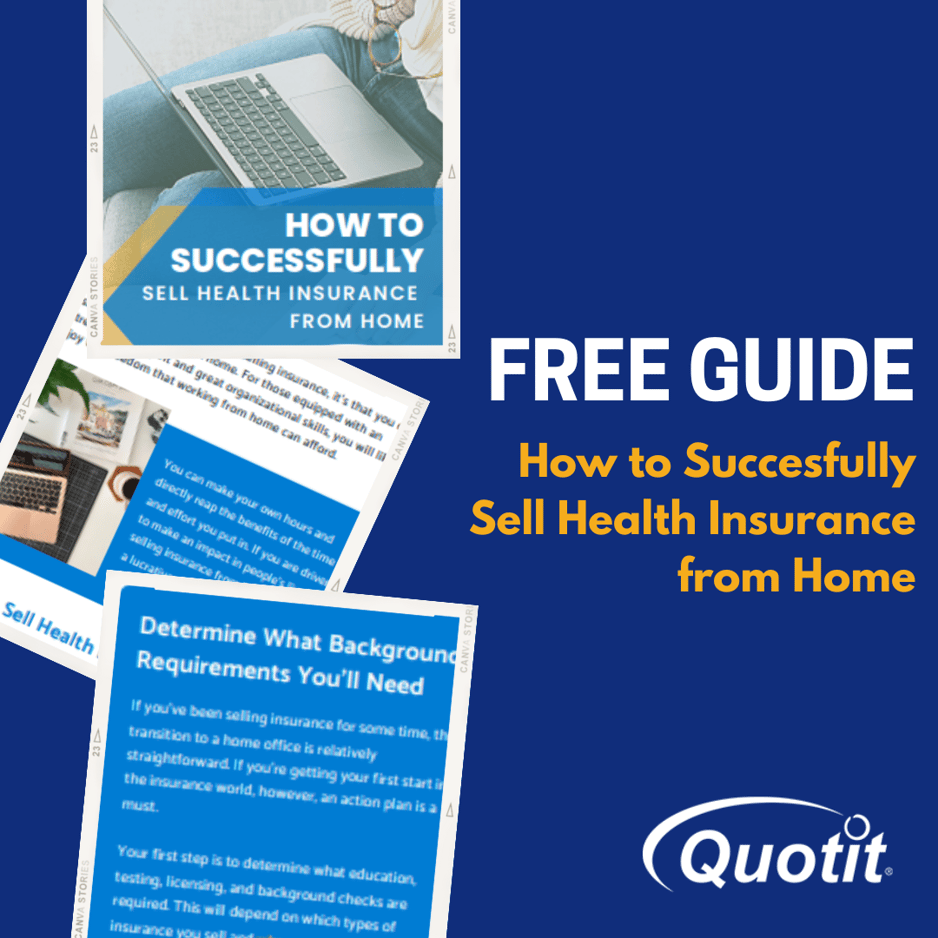Comprehensive Guide to Selling Health Insurance: Steps, Strategies, and Success Tips
Introduction
Selling health insurance is both a rewarding and challenging career. With the increasing complexity of healthcare options and regulatory environments, insurance agents play a crucial role in helping individuals, families, and businesses navigate their choices. This guide provides a detailed, step-by-step approach for those interested in selling health insurance, covering licensing requirements, client acquisition, sales techniques, and successful lead generation strategies. Whether you’re new to the field or seeking to scale your business, this comprehensive overview will help you build a foundation for success.
Step 1: Obtain Your Health Insurance License
Before you can sell health insurance, you must be a licensed life and health insurance agent in your state. Each state has its own requirements, but the general process includes:
- Completing pre-licensing education or coursework.
- Passing the state insurance licensing examination.
- Submitting a license application and background check.
- Maintaining continuing education units to keep your license active.
Many states provide official resources and guidance through their Department of Insurance. You can find specific steps and application details by searching for your state’s insurance licensing board or visiting their official website for up-to-date requirements. Licensing is mandatory and ensures you can legally advise and sell health insurance products [4] .
Step 2: Complete Marketplace & FFM Certification
To sell Affordable Care Act (ACA) Marketplace plans, agents must complete Federal Facilitated Marketplace (FFM) certification. This typically involves:
- Registering through the official HealthCare.gov portal.
- Completing annual training modules on ACA regulations, plan options, and consumer protections.
- Passing required assessments to demonstrate competency.
Once certified, agents can represent clients seeking Marketplace coverage, assist with applications, and collect commissions on eligible plans. For full details, visit HealthCare.gov’s Agents & Brokers section [2] .
Step 3: Understand Your Health Insurance Products
Mastery of the products you sell is essential. Agents should be familiar with:

Source: hub.quotit.com
- Types of health insurance, including indemnity, managed care, and reimbursement plans.
- Coverage details, exclusions, waiting periods, and premium structures.
- Eligibility requirements and enrollment periods.
A deep understanding enables you to guide clients to suitable options and builds your reputation as a trusted advisor. Investing time in product education pays dividends in client satisfaction and retention [1] .
Step 4: Apply Proven Sales Techniques
Successful health insurance sales rely on personalized, empathetic engagement. Consider applying the SPIN selling method:
- Situation : Assess the client’s background, family status, medical history, and current coverage.
- Problem : Identify gaps or challenges in their current healthcare arrangements.
- Involvement : Explore the urgency and impact of these problems on the client’s wellbeing.
- Need-Payoff : Clearly communicate how your solution addresses their needs and adds value.
Listening actively and customizing your approach increases the likelihood of closing sales and building lasting relationships [1] .
When interacting with prospects-especially over the phone-empathy is key. Tailor your message to their level of understanding and address concerns sincerely. Prepare for objections by anticipating common questions about cost, coverage, and claims. Always end conversations with a clear call to action, such as scheduling a follow-up or guiding them through the application process [5] .
Step 5: Generate and Manage Leads Effectively
Lead generation is foundational to success in health insurance sales. Effective strategies include:
- Direct marketing via email, phone, or mailers to targeted demographics.
- Building an online presence through professional websites and social media.
- Networking at community events, trade shows, and local businesses.
- Participating in online directories and referral programs to expand reach.
For remote agents or home-based sales, investing in reliable technology and maintaining a disciplined schedule can maximize productivity. Consider partnering with a General Agency (GA) to access more products and support services. Develop a systematic approach to tracking leads, following up, and nurturing prospects until they are ready to buy [3] .
Step 6: Utilize Official Marketplaces and Government Tools
Agents registered with HealthCare.gov can be featured in the ‘Find Local Help’ directory, making it easier for clients seeking guidance to discover your services. The Health Insurance Marketplace also offers tools for handling applications, making changes, and managing renewals entirely online [2] .
For small businesses, the Small Business Health Options Program (SHOP) allows agents to offer health and dental plans to employers, some of whom may qualify for tax credits. Using the dedicated SHOP Agent/Broker Portal streamlines proposal generation and application processing.
Step 7: Prepare for Long-Term Success
Building a sustainable career in health insurance sales involves:
- Continuing education and staying current with industry changes.
- Developing strong client relationships and providing ongoing support.
- Tracking commission structures and optimizing your sales process.
- Managing compliance with all relevant laws and regulations.
Agents who proactively update their skills and adapt to market trends can increase their earnings and provide superior service. According to the Centers for Medicare and Medicaid Services, four out of five consumers can now get coverage for under $10 a month, underscoring the need for skilled brokers to help clients find affordable plans [4] .
Alternative Pathways and Overcoming Challenges
Not every client will be ready to buy immediately. Persistence, patience, and adaptability are vital. Some agents find success focusing on niche markets, such as self-employed professionals or senior citizens, where specialized knowledge can set you apart. If direct sales prove challenging, partnering with established agencies or joining referral networks may provide alternative opportunities.
Challenges such as regulatory changes, market competition, and client skepticism can be overcome through ongoing education, transparent communication, and leveraging technology to streamline processes.
How to Access Resources and Services
If you are seeking official training, licensure, or government program information, always consult the authoritative agency in your region. For U.S. agents:
- Visit your state’s Insurance Department website for licensing details.
- Access HealthCare.gov for Marketplace certification and training.
- Refer to the Centers for Medicare & Medicaid Services for industry updates and compliance resources.
If links cannot be verified, search for the official agency name and program using reputable search engines or contact the agency directly by phone or email for guidance.

Source: thebrokerageinc.com
Key Takeaways
Selling health insurance requires dedication to understanding products, obtaining proper licensure, honing sales techniques, generating leads, and providing exceptional client service. Agents who embrace ongoing education, leverage official resources, and adopt proven sales strategies are well-positioned for success in a dynamic and growing industry.
References
- Nowo Tech (2025). How to sell health insurance: Top 10 tips.
- HealthCare.gov (2022). Agents & Brokers: Sell Marketplace health insurance.
- CrankWheel (2023). How to Sell Health Insurance from Home with Ease.
- The Brokerage Inc. (2024). Want to Sell Health Insurance? Here’s How to Start.
- Quotit (2024). How To Sell Health Insurance Over the Phone: 7 Proven Techniques.



